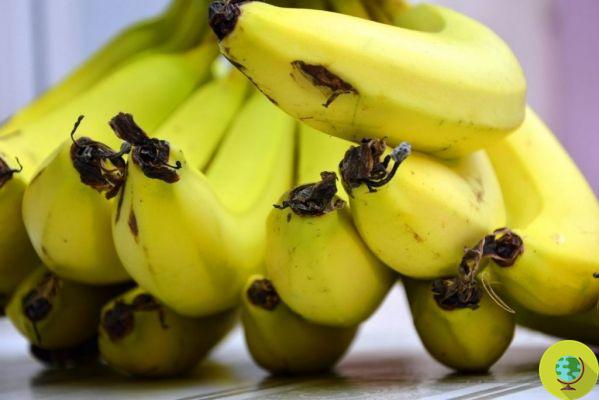We often do not pay attention to how much our eating habits influence - for better or for worse - all aspects of our life, including our sleep.
Don't store avocado like this: it's dangerousSleep well and wake up refreshed is the key to being productive during the day and to be successful in what we do. The holidays are now behind us, and after the excesses of the summer it can be good to restore some order in our routines by adopting some healthy habits that allow us to recover a correct sleep-wake rhythm, so important in our daily life.
The choices we make at the table can prove to be very useful for improving the quality of our sleep and, at the same time, our diet can also benefit if we sleep well: in fact, a restful and regular sleep contributes to regulating hormones such as leptin and ghrelin (both produced by our digestive system) which affect our sense of appetite. In short, a virtuous circle that should not be underestimated to improve our health in general. Here are some tips for eating well and sleeping better:
Index
To have breakfast
That's right: it's not just what we eat immediately before bed that affects the quality of our sleep, but our diet as a whole - so it's good to start with a good breakfast. With the right amount of sugars, good fats and proteins, breakfast offers our body the right energy charge to face the day. Additionally, a recent study showed that sleep quality tends to improve in people who eat breakfast in the morning compared to those who start the day on an empty stomach.
But be careful what we eat for breakfast: foods too loaded with refined sugars and fats (such as snacks, packaged biscuits or croissants from the bar) are not at all healthy for our metabolism! Here you are some idea for healthy, tasty and nutritious breakfasts.
Limit alcohol intake

©Yulia Grigoryeva/123rf
For many people, a shot of liquor before bed will help sleep, but it is not a 'healthy' sleep. In fact, according to the Sleep Foundation, alcohol in the blood can interfere with sleep cycles during the night - in particular, with the REM phase, that of the deepest sleep, which stimulates parts of our brain involved in learning and memorization. . Not only that: alcohol would have inhibitory effects on the production of melatonin - the sleep hormone, as this study shows.
(Read also: Stages of sleep, what are they and how many hours of deep sleep does your body need to regenerate?)
Don't overeat for dinner
Numerous studies have shown that eating too late in the evening can inhibit our ability to fall asleep: this is because with the activation of the metabolism the natural release of melatonin is interrupted, which plays a crucial role in 'preparing' our body for the hours of sleep. . More specifically, eating within the three hours before we go to sleep increases the likelihood of sleep disturbances - especially for those who suffer from conditions such as gastric reflux.
It is therefore better to consume light meals at dinner, limiting the consumption of fatty or fried foods and eliminating those 'exciting' foods - such as coffee, chocolate, spicy foods, mint and, for those suffering from acidity, acidic foods such as tomatoes or lemon.
Green light to 'smart' snacks

@Peggychoucair/pixabay.com
If your stomach starts rumbling after dinner, an hour or two before bedtime, there's no harm in having a small snack. The important thing is to choose the right foods, which do not prevent our body from relaxing and indulging in a good sleep. An example could be the prunes: Contains calcium, magnesium and vitamin B6 - exactly what our body needs to produce melatonin and promote sleep. However, plums contain sorbitol, a sugary substance that helps regulate our digestive system (which is why they are recommended for constipation sufferers): it is therefore good not to overdo it if we do not want to get up in the night to go to the bathroom.
also the bananas contain serotonin, magnesium, potassium and fiber, and can promote falling asleep, according to the Sleep Foundation: one idea is to create a relaxing artisan 'ice cream' by blending a frozen banana with lavender drops to have a calming and relaxing effect . Finally, the cherries - especially the black cherry variety - are recommended as a snack before going to sleep: just drink a few sips of black cherry juice (of course, with no added sugar!) Before going to sleep to reduce insomnia and appreciate a better sleep, according to this study.
Follow us on Telegram | Instagram | Facebook | TikTok | Youtube
We also recommend:
- How to live longer: this simple and free daily habit is the secret of longevity
- Sharing the bedroom with your dog improves sleep quality
- Sleep green, sleep better! Tips for "zero emissions" sleep


























